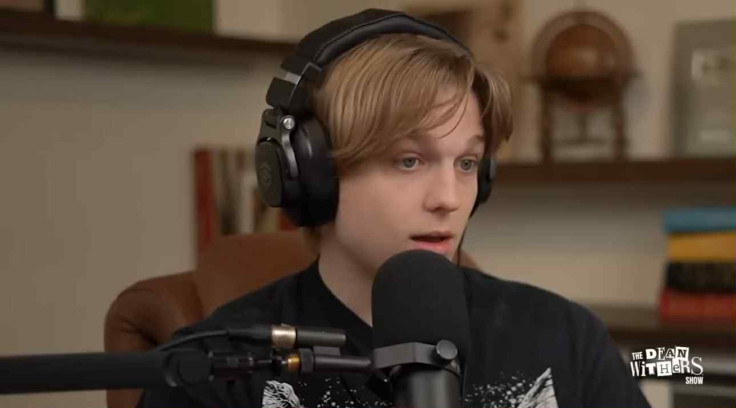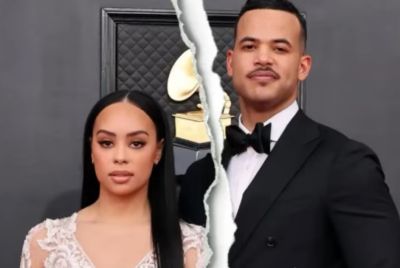MAGA Supporter Asks Dean Withers 'Why It Is Wrong To R*pe Children' And Viewers Demand Probe
A viral livestream clip of Dean Withers confronting an audience member who asked why child rape is 'wrong' has sparked widespread outrage and calls for an official inquiry.

A clip from a live debate captured a moment of concerning moral relativism when a supporter repeatedly asked the commentator Dean Withers why child rape is 'wrong', prompting significant public criticism and calls for an inquiry.
Dean Withers, a prominent online political commentator who streams on TikTok, YouTube, and Instagram, was livestreaming a debate when a man in the audience removed his mask and began insisting that Withers explain the moral case against sexual violence against minors. The exchange, widely shared across social platforms, shows Withers visibly taken aback as he challenges the questioner and attempts to re-centre the conversation on consent, harm, and law. Video copies of the clip appear on Instagram and YouTube, while Withers himself described the incident on his X account.
The Clip and How It Spread
The original livestream segment appears to have been recorded and reposted across social networks within hours, with reels on Instagram and multiple YouTube uploads excerpting the confrontation.
In the most-viewed versions, the attendee asks in a blunt, repeated way: 'Why is it wrong to rape children?', a formulation that surprised both the host and many viewers. Withers responds first by asking for clarification and then by stating emphatically that sexual violence against minors is harm, a crime, and morally indefensible.
The clip's rapid spread owes much to the way it was shared: short, loopable excerpts on Instagram and reposts on Facebook accelerated distribution after copies of the TikTok originally posted by Withers's channel were shadow-blocked or made difficult to access.
Withers's own social post summarised the incident as a disturbing example of how some debate opponents attempt to normalise or relativise abuse, prompting thousands of replies demanding accountability and investigation.
Legal And Ethical Stakes
Legally, sexual activity with minors is a criminal offence across the United States; statutes define age-of-consent thresholds and criminalise sexual contact with children in nearly every jurisdiction.
Beyond criminal law, child-protection experts describe the questioner's line of argument as a form of moral erasure, an attempt to detach harm from legal and ethical responsibility. Clinicians caution that public normalisation of such lines of argument can retraumatise survivors and risk normalising abusive behaviour.
Media-ethics scholars contacted in the aftermath noted the dual risk in covering viral clips like this: the public has a right to know when extremists test the boundaries of acceptable public discourse, yet amplifying the question without context can inadvertently promote dangerous ideas. That is why many newsrooms follow standards that require placing harmful statements inside clear condemnation and providing resources for survivors, a practice largely followed by outlets and by the viral reposts in this case.
Political Context And Public Reaction
The audience member's political identification as a MAGA supporter, repeatedly emphasised in many reposts and viewer commentary, turned the clip into a political flashpoint, with critics arguing the behaviour reflects a wider culture of tolerance among some far-right online communities. Supporters of the attendee have at times framed the exchange as a contrarian 'gotcha' tactic used to expose perceived moral inconsistencies; opponents call it evidence of radicalisation and a need for platform moderation. The partisan overlay has amplified calls from viewers for platforms, law enforcement, and debate hosts to investigate the incident and to take steps to prevent similar encounters.
Public reaction has been intense: commenters and reposts have urged social media platforms to remove the original clip or add warnings at least. Meanwhile, some advocacy groups demanded an inquiry into the event's organisers and whether adequate safeguards were in place for livestream audiences. Several community-safety commentators argued that livestreamed debates require better moderation and clearer rules about permissible lines of questioning to protect both participants and viewers.
An impartial inquiry would serve several public-interest functions: it would verify whether the attendee intended rhetorical provocation or whether the remarks amounted to an admission of intent; it would assess whether the venue and platform met duty-of-care obligations to participants and viewers; and it would set a precedent about how livestreamed political forums should moderate extremist or harmful lines of questioning. Given the clip's rapid circulation and the serious nature of the question posed, many commentators warn that failing to respond risks normalising dangerous rhetoric online.
Yesterday, a Trump Supporter I was debating took off their mask and argued that CHILD RAPE wasn’t wrong, by incessantly asking me why it is.
— Dean Withers (@itsdeaann) November 15, 2025
They’re trying to normalize pedophilia. It’s not normal, it’s evil. How did we get here.
The footage is stark, the reactions are raw, and the questions it raises cut across law, media ethics, and public safety. Whether platforms and authorities will treat this as a viral anomaly or as evidence warranting formal investigation remains to be seen, but for millions who saw the clip, the moral clarity of the answer is not in doubt.
The clip is a disturbing reminder that public debate can quickly cross into questions that demand legal scrutiny and platform accountability.
© Copyright IBTimes 2025. All rights reserved.





















